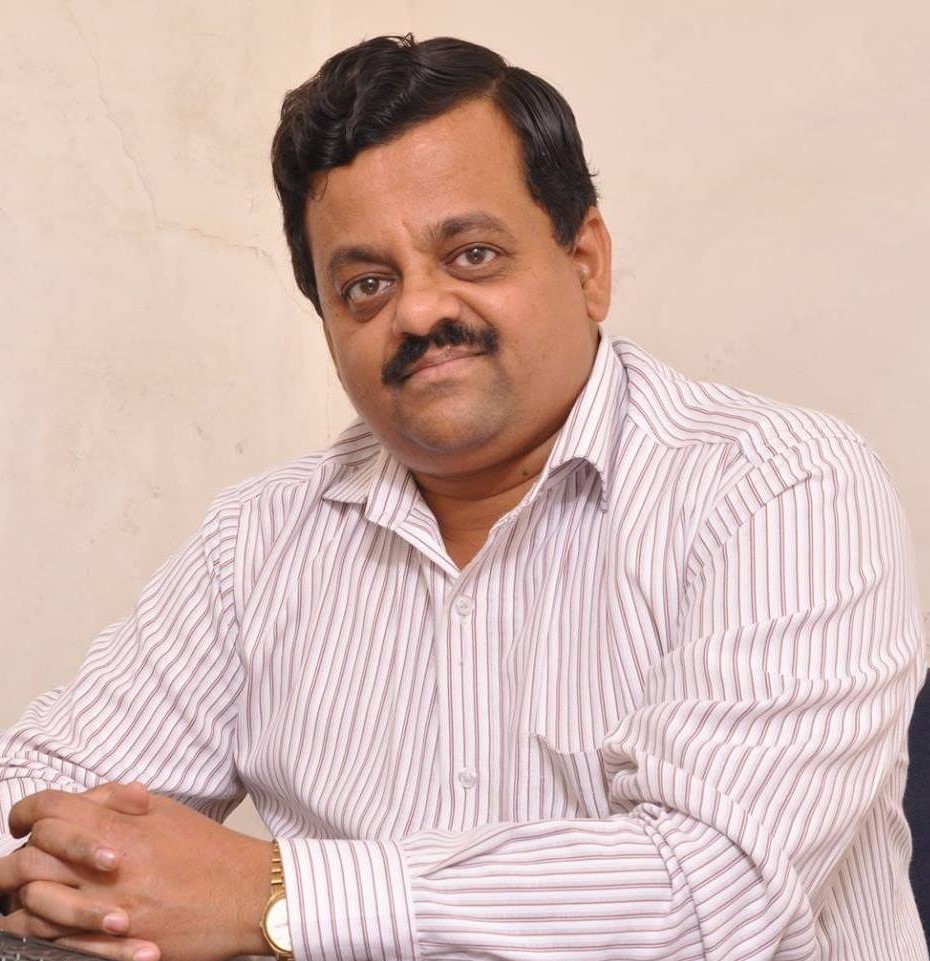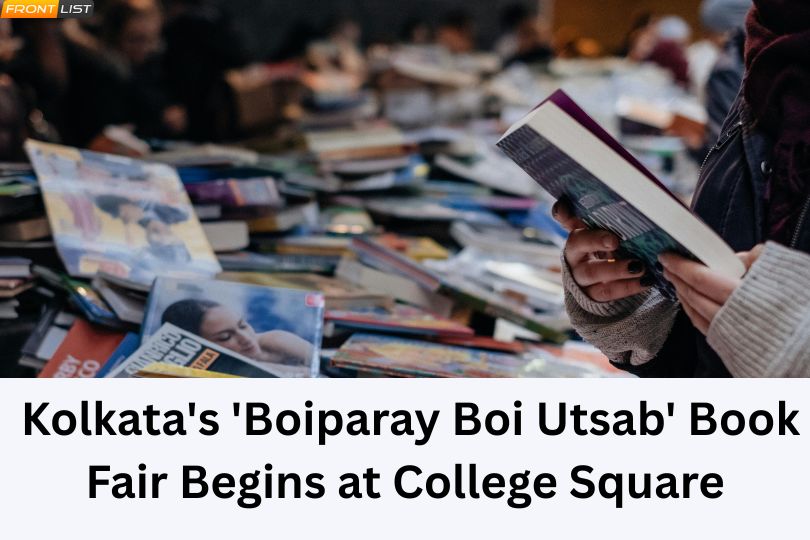Interview With Deepak MR, Author of 'Abhimanyu: The Warrior Prince'
on Mar 29, 2022

Deepak M.R. is a professional trainer and writer. With master's degrees in commerce and management, he has over twenty-five years of experience in education, training and consultancy. He has been involved in corporate training, teaching, process consultancy and auditing, and has worked at a private university as a dean and controller of examinations.
Deepak has written academic books and technical articles during his career. He writes blogs and is an avid fan of various genres of fiction. He has contributed to the anthology Unsung Valour: Forgotten Warriors of the Kurukshetra War (Bloomsbury, 2020) that features tales of forgotten warriors from the great epic. He considers the story of the Mahabharata as the greatest ever told.
At present, he works as a professional writer, tackling subjects such as healthcare, business, finance, lifestyle and technology. He is working on a collection of short stories featuring a great hero from the Mahabharata. He is also working on a fantasy adventure fiction set in the post-Mahabharata period. He lives in Bengaluru with his wife, daughter and parents.
1. What Abhimanyu did while he was trapped in the chakravyuh, probably
was not shown to the audience in Mahabharata. What are some of the
unknown facts you have shown to the audience about Abhimanyu in this
book?
Most TV shows have not shown in detail what happened during the 13th day of the Kurukshetra war when the Chakravyuha was formed. Abhimanyu’s valour on that day is among the greatest displays of bravery in the war. He single-handedly fought with all the great Kaurava warriors and created chaos in the Kaurava ranks.
He killed many great warriors like the son of Shalya Rukmaratha, Karna’s brother, and most importantly Lakshmana, the son of Duryodhana who was the heir to the Hastinapura throne. He also slaughtered thousands of Kaurava soldiers creating complete panic in the Kaurava ranks. Abhimanyu repeatedly defeated Karna proving his might on the battlefield. Unfortunately, all these incidents have never been highlighted. I have faithfully recorded all the incidents that occurred in my book.
2. Abhimanyu has never really received the due credits which he deserved
in Mahabharata. How has your book shown him in the limelight? And how
have you glorified the warrior side of him?
In my book, I have depicted Abhimanyu’s prowess in the battlefield as per the original Vyasa Mahabharata. There is no glorification instead the incidents that took place in the war are narrated as it took place. On the very first day of the war, Abhimanyu took on the mighty Bheeshma and destroyed his chariot flagpole. It was a stupendous achievement for someone who was sixteen years of age.
During every day of the war, he contributed to his side’s success. He killed the king Brihadbala of Kosala and many other powerful warriors. He defeated the terrible demon Alambusha. Great warriors like Karna and Duryodhana were repeatedly defeated in battle. All these have been depicted in the book in the battle scenes.
3. Could you please elaborate on the part where Abhimanyu is trained by
Pradyumna? According to you, what are some of the key facts about
pradyumna which one must know?
In the Vyasa Mahabharata, Bheeshma talks about Abhimanyu and explains how he learnt from Pradyumna, the son of Krishna. Pradyumna is one of the most powerful warriors and is Kamadeva reborn after he was burnt by Shiva. Pradyumna trained Abhimanyu and helped him in his quest to become a great archer.
Incidentally, Pradyumna did not participate in the war since he did not want to fight either the Pandavas or the Kauravas. He and his uncle Balarama went on a pilgrimage and returned by the time the war ended.
4. What were some of the significant rules/ code of conduct in
mahabharata? Essential for winning the battle and yet were broken by
both pandavas & Kauravas to win the battle. Was it ethical and righteous
to do so in the war?
A code of conduct for the war was agreed upon by both the sides. Bheeshma being the senior-most outlined the rules and the Pandavas also agreed to it. As per the code of conduct, the following had to be observed:
Warriors had to fight among their equals and not with someone inferior to them.
Group attacks were not allowed.
Attacking from behind was not allowed.
Attacking an unarmed or helpless person was not allowed.
The first two rules of the code were broken on the very first day when everyone started fighting with everyone else and when group attacks became common. The biggest violation of the code came with the killing of Abhimanyu when he was attacked from behind and then killed while he was unarmed and helpless.
This was a cardinal violation of the code of conduct and the Kauravas had to suffer because of this. The Pandavas too violated the code of conduct because of this act of the Kauravas. This proved costly with the war ending with wide-spread death and devastation.
5. How did the death of Abhimanyu change the direction of the war
completely?
Abhimanyu’s death completely changed the course of the war. Until then, Arjuna was restrained in battle. Even though Krishna had advised him to discharge his duty as a warrior, Arjuna was concerned that he had to kill his own family members and fight with his elders. This ensured he had not given his 100% in the war.
The brutal and treacherous killing of Abhimanyu enraged Arjuna. He took a vow to kill Jayadratha and then accomplished it. On that fateful day, 7 battalions or akshauhinis were wiped out by Arjuna. From then on, the war was completely dominated by the Pandavas who quickly ended the war by killing the remaining Kaurava commanders/great warriors.
6. Mahabharta, originally written by Vyasa did not have much facts &
knowledge about Abhimanyu. It was brief & short. So we are curious to
know about how you overcame the challenge of digging an elaborate
profile of Abhimanyu? What were your authentic sources or domains which
you could trust before publishing your book?
The Vyasa Mahabharata had only passing mention to Abhimanyu’s birth and training. His role comes into effect from the war. It was a big challenge to write this book, since the first part of his life was not clearly outlined in the Mahabharata. I had to fill the gaps by talking about his childhood and pre-war life.
The rich folklore of our country helped me in this. A popular folktale outlines how Krishna taught Abhimanyu the art of entering the Chakravyuha when in his mother’s womb. Another folktale talks about how Abhimanyu went in search of his father and found him in Viratanagar. I was inspired by these folk tales and adapted them in my book.
The details of the training received by Abhimanyu and the love story with Uttara was not available anywhere. I had to write that part using my creative skills. It was a challenge and thankfully my experience reading a variety of books helped me to do this.
For the second part of the book, I referred to the Vyasa Mahabharata and narrated the war incidents as they occurred. Some minor additions in terms of dialogs and situations were included by me. For the novel, my main source was the translation of the Mahabharata by Kisari Mohan Ganguli (KMG). I also referred to C Rajagopalchari’s abridged version of the Mahabharata and the popular Amar Chitra Katha comic on Abhimanyu.



.jpg)






.jpg)

.jpg)
.jpg)

.jpg)
.jpg)
.jpg)










Sorry! No comment found for this post.